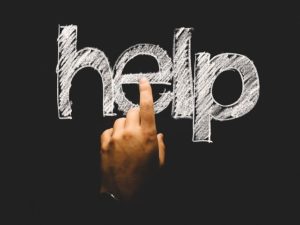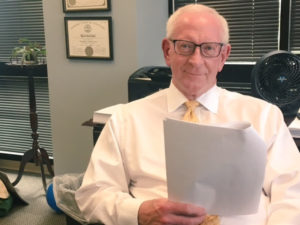 Chapter 7 Bankruptcy: What Happens to Cosigned Debts?
Chapter 7 Bankruptcy: What Happens to Cosigned Debts?
Filing Chapter 7 with cosigned debts can mean a more complex case, so it’s important to understand how Chapter 7 and cosigned debts work together.
Whether it’s a car loan, a credit card, or a personal loan, cosigned debts can make things a little more complicated during bankruptcy. As a Memphis bankruptcy lawyer, I’ve seen how this situation can affect both the person filing and the cosigner. So I’m here to break it down for you in simple terms.
What Is a Cosigned Debt?
Family members, partners, or close friends often want to help you get approved for a loan or credit card. As a cosigner, they can offer big help in the moment and even make the loan possible. This agreement can especially help people with little or no credit.
But when someone cosigns a loan for you, they agree to take responsibility for the debt if you don’t pay it. So if things go south financially, that cosigner is still on the hook.
 What Happens to Cosigned Debts in Chapter 7?
What Happens to Cosigned Debts in Chapter 7?
Here’s the key thing to remember: Chapter 7 bankruptcy only protects you, not your cosigner.
Chapter 7 wipes out your responsibility for most unsecured debts – like credit cards and personal loans. But your cosigner’s responsibility doesn’t go away. The lender can still come after them for the full amount of the debt, plus interest and fees.
Let’s say your parent cosigned a $10,000 personal loan for you. If you file for Chapter 7 and that debt is discharged, your parent could suddenly find themselves on the hook for the entire $10,000 – and all the debt collection tactics that come with it.
That means your cosigner might face creditor harassment, wage garnishment, lawsuits, and more. The debt can tank their credit and impact their finances well into the future.
 Can I Do Anything to Protect My Cosigner?
Can I Do Anything to Protect My Cosigner?
Fortunately, there are a few strategies we can talk about if protecting your cosigner is important to you:
1. Reaffirm the Debt
“Reaffirm the debt” means you agree to keep paying the loan even after filing for bankruptcy. It keeps both you and your cosigner responsible—but it also keeps the debt alive.
You’ll need court approval to do this, and it’s only recommended if you’re sure you can afford the payments.
2. Pay It Off After Bankruptcy
Even though your legal obligation is wiped out, you’re allowed to voluntarily keep paying a debt after your discharge. This won’t officially protect your cosigner, but it can help them avoid being pursued by the lender.
3. Convert to Chapter 13
If your goal is to protect your cosigner, Chapter 13 bankruptcy might be a better fit. It lets you repay some or all of your debts over time, which could prevent your cosigner from being held responsible.
 Should I Talk with My Cosigner First?
Should I Talk with My Cosigner First?
Absolutely. If you’re thinking about filing for bankruptcy and you have a cosigned debt, it’s a good idea to talk to them first.
Firstly, your cosigner may not even realize what their legal responsibility is, and it’s better to have an open and honest conversation before they get surprised by a bill they didn’t expect.
But in addition, it always helps to be transparent around financial issues. You may find your cosigner has other ideas on how to pay the debt and stay afloat.
It’s also the best way to stay in good graces with the people who care the most about you. After all, they probably cosigned the loan in the first place because they wanted to help you. And the best way to pay them back is to help them as well by being honest with them at all times.
 You Don’t Have to Figure This Out Alone
You Don’t Have to Figure This Out Alone
Cosigned debts can add a layer of stress to an already tough financial situation. But you don’t have to make these decisions by yourself. As a Memphis bankruptcy lawyer, I can walk you through your options and help you figure out the best way forward—for you and your cosigner.
If you’re feeling overwhelmed by debt, let’s talk. We offer a free consultation as a great first step that might give you some peace of mind. Together, we’ll figure out the right plan to help you move forward.
To get started, just contact us online today or call us at 901-327-2100. We look forward to talking with you.

 Can I Do Anything to Protect My Cosigner?
Can I Do Anything to Protect My Cosigner? Should I Talk with My Cosigner First?
Should I Talk with My Cosigner First? You Don’t Have to Figure This Out Alone
You Don’t Have to Figure This Out Alone